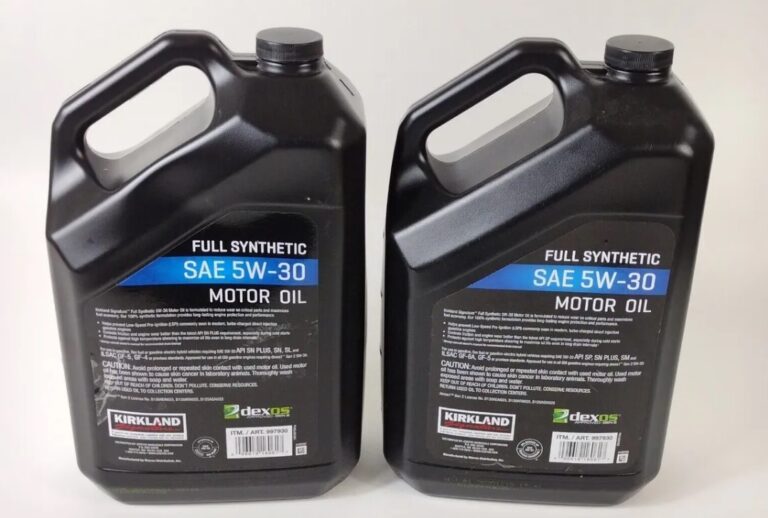Can Kerosene Be Used In Petrol Engines? Answered
This article has all the information about Can Kerosene Be Used In Petrol Engines? You might observe that kerosene is a lighter diesel blend. You may wonder if it can displace diesel. Perhaps you’ve always wondered what would occur if someone filled your petrol tank with something similar.
So the question is: What happens if kerosene be used in petrol engines? If you use kerosene, there can be poor combustion and performance. Kerosene may include trace levels of diesel.
It isn’t a good substitute for any fuel, in any event. Kerosene is almost certain to prevent your car’s engine from even starting.
Can Kerosene Be Used In Petrol Engines?
A spark is ignited in a mixture of air and fuel vapors by a gasoline engine. Kerosene can be used with it, but it must first be vaporized.
The flashpoint, or the lowest temperature at which the fuel will produce enough vapor to burn, is a crucial consideration.

Why Is Kerosene Not Used In Cars?
The main justification is that gasoline is more effective. Below the boiling point of water, it vaporizes readily and burns more quickly and thoroughly.
Additionally, it burns cleaner than kerosene. Less refined and more akin to diesel fuel is kerosene.

It won’t evaporate at higher temperatures. This indicates that combustion is more difficult than it is with gasoline. As a result, kerosene is not used as a car fuel.
What Is Kerosene?
Petroleum is the source of the explosive chemical compound known as kerosene. It is a hydrocarbon liquid that powers heaters, furnaces, lamps, and jet engines.
Kerosene has a freezing point of roughly -40°C/°F and a flash temperature of 38°C (100°F).
The World Health Organization (WHO) does not suggest using kerosene as a household fuel because it is a polluting fuel and because kerosene smoke contains particulate matter that can be harmful and increase the risk of cancer, asthma, tuberculosis, respiratory infections, cataracts, and adverse pregnancy effects.
Kerosene Vs Diesel
Diesel and kerosene are petroleum fuels from crude oil’s molecular building blocks. Since kerosene has a lower boiling point than diesel, it is extracted from crude oil before diesel.
Kerosene is colorless, whereas diesel is reddish. While diesel is nearly solely utilized for vehicles, kerosene is often employed in various engine systems.
Benefits Of Running Kerosene In Your Diesel
The use of kerosene in diesel engines has a few advantages.

Kerosene Is Cheaper
Price is the main advantage of using kerosene in your diesel engine. Kerosene can seem like a terrific choice if filling up at the gas station gives you a lot of discomfort because it is significantly less expensive than diesel fuel.
Kerosene Doesn’t Gel As Easily
Since kerosene doesn’t gel as quickly as diesel, it may operate much more smoothly when the temperature drops below zero.
This is a big advantage in colder climates like Alberta! However, adding numerous additives to diesel fuel can prevent gelling and keep your diesel fuel from becoming sluggish.
Risks Of Using Kerosene
Kerosene used in a diesel engine instead of diesel carries a lot of dangers even though it is less expensive and less likely to gel.
Kerosene Isn’t Lubricating
Kerosene is a harsher fuel for your diesel engine, and unless you add lubricant, the lack of lubrication in the fuel might harm your diesel injector pump.
Kerosene Isn’t As Efficient
Kerosene is far less fuel efficient than diesel and has less engine power since it burns at a lower temperature (which prevents gelling in below-freezing weather).
Running kerosene through your diesel will give you little power, and the wasted fuel could cost you more than you expected.
Kerosene Can Cause Damage To Some Diesels
Kerosene is a recognized alternative fuel for some diesel engines, but not all diesel do. If kerosene is not an authorized fuel, using it through your diesel engine could result in several problems.
Using Kerosene Can Void Warranty
Kerosene use could breach your vehicle’s engine warranty if it isn’t a recognized alternative fuel for that particular engine.
Before using kerosene, consult the owner’s manual and your warranty provider.
Using Kerosene May Be Prohibited
Using fuel that has yet to be properly inspected and taxed on public roadways in Canada and the US is illegal.
You risk paying a fee if you use kerosene in your car that wasn’t designed for driving. Ensure you act legally because fuel for road vehicles must adhere to specified ash and pollution limits.
While kerosene can be used in diesel engines, the dangers to your diesel and associated liabilities typically outweigh the cost savings.
Kerosene is frequently not advised if you want to reduce gelling in your diesel throughout the winter.
Even if you may have heard recommendations to mix 50/50 kerosene and diesel in small amounts when it’s chilly outside, experts in the diesel sector have yet to advise it.
Instead of randomly combining kerosene, it is far better for your engine to utilize lubricants, additives, and winter-safe diesel engine oil.
The possible high expense of repairing any damage it may cause will outweigh any cost savings you may realize from putting kerosene in your fuel.
What Happens If You Put Kerosene Into A Gas Tank?
Kerosene is caustic, so filling your gas tank with it risks harming your engine. Even though it is a light diesel blend, kerosene could be a better engine fuel.
Your engine’s performance could suffer, and your exhaust could become smokey.
Additionally, kerosene makes it challenging to start your car. An automobile with a gasoline engine may suffer injector system damage if the fuel tank contains too much kerosene.
Kerosene in a gas tank could have both immediate and long-term effects.
Short Term Effects
It’s difficult to predict how much longer-term effects you’ll experience if you add kerosene to a gas tank. It’s doubtful that a few drops of kerosene in a gallon of standard gasoline can significantly hurt the engine.
However, adverse effects like a smoky exhaust and decreased engine performance could happen. It’s still a bad decision, even if the small amount of kerosene has no negative effects.
Long Term Effects
Imagine you failed to drain your kerosene tank before you left. Doing this risks contaminating your fuel, which could reduce performance and eventually cause engine damage.
Kerosene is not a suitable chemical; thus, using it in your car’s engine wastes time and money.
Can Kerosene In A Gas Tank Damage An Engine?
Kerosene in the gas tank has the potential to harm engines. It could severely affect your injector system if you put too much into it.
The system becomes contaminated when kerosene is added to your fuel. Your engine can stall and shut off as a result.
As the kerosene production process went on, carbon deposits would develop. Often, this kind of damage is irreparable.
This could cause your engine to start losing power, which would cause frequent misfires and warning lights on the dashboard. It would be wise to take action as soon as possible to avoid this from happening.
Will A Car Run Off Kerosene?
Kerosene cannot power a car; hence, the answer is no. Kerosene is a lighter diesel blend, but it is still insufficient to substitute car fuel. A simple kerosene and gasoline mixture can poison the entire engine system.
Your car’s overall performance will be negatively impacted, which could cause major problems. Kerosene is a lighter diesel blend; thus, there are better ideas than using it as a spark in ignition engines.
As a result, it’s improbable that you can start a car with a full tank of kerosene. Most of the time, a full tank of gas and a few drops of kerosene won’t cause any engine issues. The smoky exhaust might result from poor combustion.
How Much Kerosene Will Cause A Gas Tank To Rupture?
A complete gasoline tank could become contaminated by even a small amount of kerosene in the tank.
Think about the scenario where your engine is still functioning after two fills of fuel tainted with kerosene. If that’s the case, it will take a little while for your engine to become worthless.
A simple kerosene and gasoline mixture can poison the entire engine system. Your car’s overall performance will be negatively impacted, which could cause major problems.
Kerosene is a lighter diesel blend; thus, there are better ideas than using it as a spark in ignition engines.
As a result, it’s improbable that you can start a car with a full tank of kerosene. Your car may operate poorly after two fill-ups with fuel polluted with kerosene.
Can You Tell If Someone Put Kerosene In Your Gas Tank?
Yes, kerosene in your gas tank can be found. If this occurs, the kerosene will mix with the gasoline. Kerosene as a fuel source could result in poor combustion and smokey emissions.
Your car will emit a lot of smoke if the combustion is poor. Please turn off your engine and check it as soon as you see a lot of smoke from your exhaust. If kerosene is not burned properly, it could result in engine blockage.
Kerosene residues left in your engine could cause it to clog. The stuttering of your car’s engine will eventually result in damage.
To prevent further damage, you should immediately turn off the engine if you think someone may have accidentally poured kerosene into your gas tank.
Conclusion
I will summarize the above information about whether can kerosene be used in petrol engines. So, what happens if you put kerosene in your gas tank? If you use kerosene, there can be poor combustion and performance.
Kerosene may include trace levels of diesel. In any event, it isn’t a good substitute for any fuel. Kerosene is almost certain to prevent your car’s engine from even starting.
Of course, kerosene can be added to an entire fuel tank without causing any issues. However, the combustion of such compounds may cause your engine to run poorly and produce black smoke.
This shouldn’t be put in your engine, please. Remember that kerosene cannot replace gasoline and that adding any to your tank will not affect your engine.
Top FAQ’s
Can an engine run on kerosene?
Kerosene is a recognized alternative fuel for some diesel engines, but not all diesel does. If kerosene is not an authorized fuel, using it through your diesel engine could result in several problems.
Will kerosene mix with petrol?
Engine knocking will result from kerosene-adulterated gasoline since its octane number is lower than regular gasoline’s. This was seen when the engine ran on a mixture of 50% kerosene and 50% gasoline.
What happens if you put kerosene in a car engine?
The dry burn of kerosene, which could harm gasoline pumps, is the most frequently raised worry. Compared to #2 diesel, kerosene has extremely little lubricity. Fuel pumps that run on kerosene suffer from heavy wear and may burn out if they lack lubricity.
What engines use kerosene?
Kerosene is frequently used as jet fuel for aircraft jet engines and, in a highly refined version known as RP-1, for some rocket engines. It is also frequently used as a fuel for cooking, lighting, and fire toys like poi.

Welcome to the exhilarating world of Matt Rex, a professional car racer turned renowned vehicle enthusiast. Immerse yourself in his captivating blog as he shares heart-pounding adventures, expert reviews, and valuable insights on cars, trucks, jets, and more. Fuel your passion for speed and discover the beauty of vehicles through Matt’s engaging stories and meticulous expertise. Join the ever-growing community of enthusiasts who find inspiration and expert advice in Matt Rex’s blog—a digital hub where the thrill of speed meets the pursuit of knowledge.







